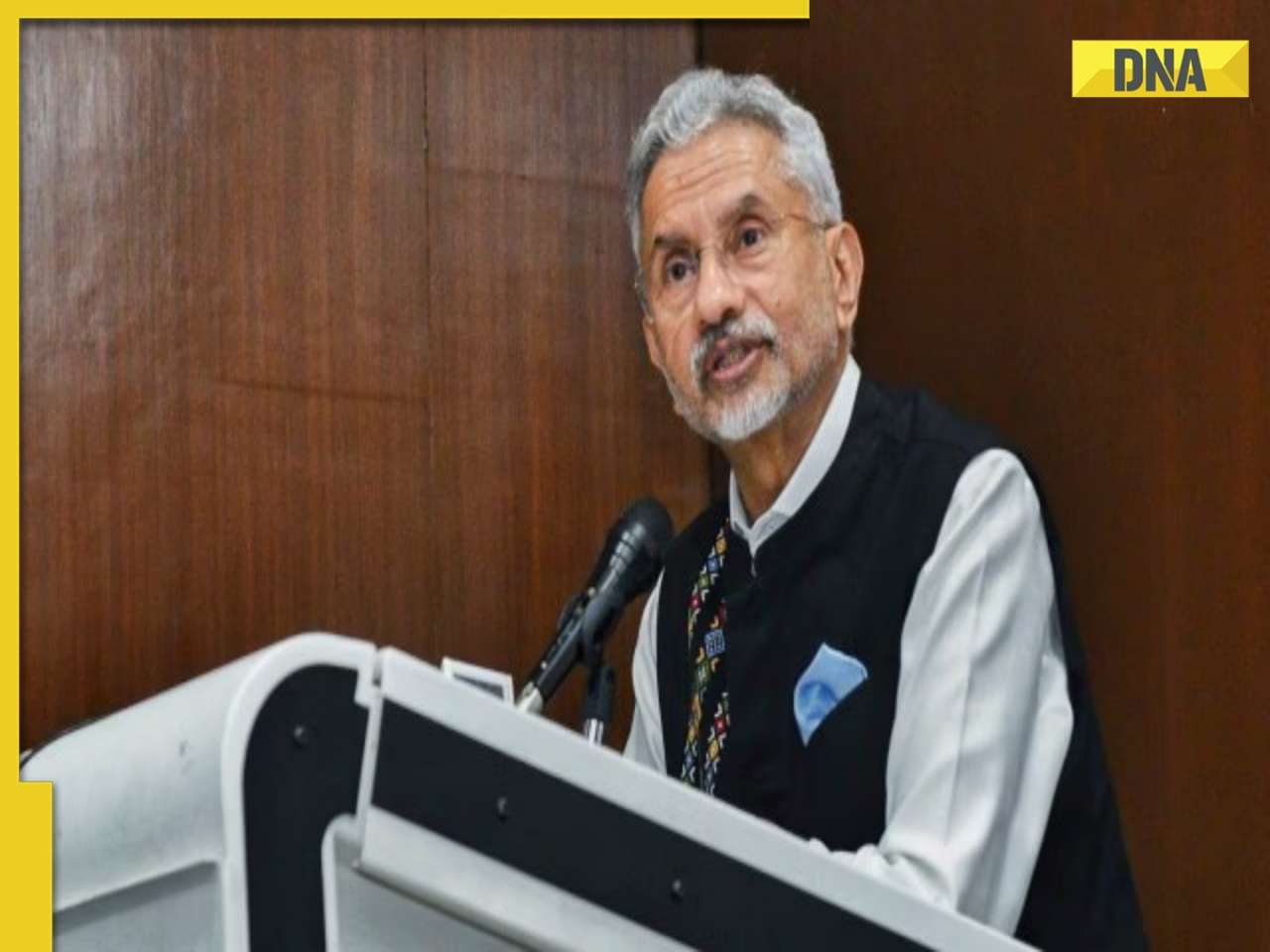Russell Crowe’s portrayal of Nobel Prize-winning mathematician John Forbes Nash in A Beautiful Mind gave us a glimpse into the life of a schizophrenic.
Today is World Schizophrenia Awareness Day. DNA diagnoses an illness that has drastically altered lives and showcases people who have fought it
MUMBAI: Russell Crowe’s portrayal of Nobel Prize-winning mathematician John Forbes Nash in A Beautiful Mind gave us a glimpse into the life of a schizophrenic. While most of us appreciated the movie, not many would know how to deal with a person suffering from schizophrenia in real life. How else can we justify the covert giggles and laughter that hound those who have been diagnosed with the brain disorder? Accepting such people is not easy, for they live in a make-believe world, a world that is far removed from reality.
“There was a patient who fell madly in love with someone and turned into a stalker. Then there was a woman who believed that Lord Krishna was her lover,” says a psychiatrist narrating case histories of some of his patients. A famous industrialist’s schizophrenic son seemed like any normal man. “Except for the fact that he was under the delusion that he was a king,” recalls another counsellor.
It may sound amusing to an unrelated observer, but for those who suffer from schizophrenia, this delusional world is their “reality”. Life is even more difficult for their families and caregivers. They have to constantly shuttle between the make-believe world of the patient and the real world, where their loved one is ridiculed and labelled “insane”.
“Schizophrenia is a brain disorder where the patient experiences an altered reality, delusions, hallucinations, paranoia and suspicion. In addition to chasing his own ghosts, the individual also has to deal with social ostracism, which in turn aggravates loneliness and disconnect with the real world,” explains Dr Fabian Almeida, psychiatrist, Wellspring Counselling Clinic, Kalyan. Almeida has conducted more than 500 workshops to promote mental well-being.
According to experts, nearly one per cent of the population suffers from the disorder. The World Health Organisation (WHO) estimates that one in every 100 persons suffers from schizophrenia while psychiatrists say 1.5 to 2 per cent of people in Mumbai suffer from some psychiatric disorder. Of these almost 80 per cent attempt or contemplate suicide at some point in their lives. Tragically, 10 per cent succeed.
The onset of the illness typically occurs in young adulthood, usually between the ages of 18 and 30. “Early diagnosis is the key, as it outlines the treatment as well as the outcome of the illness,” explains Almeida. “It is essential to create awareness about the disorder, which, in turn, will result in the creation of better support systems for the mentally ill in our society.”
But the most difficult aspect of the disease is the refusal of the patients to accept that there’s something wrong with them. Experts say that at least 20 to 30 per cent of patients do not believe they are ill. Often, patients become paranoid, more so towards those who care for them. Prompt hospitalisation, despite the patient’s reluctance, is necessary at such times, say psychiatrists. “Just as you would rush a family member who has suffered a stroke to a hospital, schizophrenics need medical attention too,” says Almeida. “There are several ways of dealing with un-co-operative patients. They can be given medication in food or administered medicated drops.”
But there is hope, say experts. “In the past 30 years, there has been a remarkable improvement in treatment strategies,” says Dr YA Matcheswalla, president, Bombay Psychiatrists Association, and head of the department of psychiatry at Messina Hospital, Byculla. “A number of drugs are now available, which can control, treat, and to some extent cure the disease. Also, there are psycho-social, behavioural, and rehabilitative programmes for such patients.” Messina Hospital has a special 110-bed ward for psychiatric patients.
Psychiatrists say regular follow-ups are a must for people battling schizophrenia. “When a schizophrenic overcomes the disorder, he begins to question why it all happened. This is known as post-psychotic depression and must be dealt with seriously,” says Almeida.
“Research has shown that the prognosis of patients undergoing treatment in India is better than their counterparts in the Western world,” says Akila Charagi, who has coped with the illness. “Perhaps, this is due to our social environment, where families share a close bond.”
This is where support groups such as Dilaasa come in. Over 150 family members of schizophrenic patients meet every Sunday from 11am to 1pm at Messina Hospital to share their problems.
Explaining the need for such support groups, Matcheswalla says, “Family members dealing with a patient suffering from schizophrenia need emotional support as they have to deal with a lot of difficulties at home.” Citing the example of Western countries where support groups form an integral part of the social fabric, Almeida says, “In the West, there are support groups for everyone — from people who want to lose weight to shopaholics. Similarly, there’s a need for support groups for schizophrenics, survivors, and caregivers.”
s_deepa@dnaindia.net
![submenu-img]() 'They unilaterally took some measures': EAM Jaishankar on new Nepal 100 rupee currency
'They unilaterally took some measures': EAM Jaishankar on new Nepal 100 rupee currency![submenu-img]() Meet Ice Cream Lady of India, who built Rs 6000 crore company, started with small investment of Rs…
Meet Ice Cream Lady of India, who built Rs 6000 crore company, started with small investment of Rs…![submenu-img]() ‘Canada a rule-of-law country’: PM Trudeau after 3 Indian arrested over Hardeep Nijjar's murder
‘Canada a rule-of-law country’: PM Trudeau after 3 Indian arrested over Hardeep Nijjar's murder![submenu-img]() Viral video: Specially-abled girl’s energetic dance to Bollywood song wows internet, watch
Viral video: Specially-abled girl’s energetic dance to Bollywood song wows internet, watch![submenu-img]() 'Baap re baap': Imtiaz Ali reveals Diljit Dosanjh was scandalised by old women's 'vulgar' improvisation on Chamkila set
'Baap re baap': Imtiaz Ali reveals Diljit Dosanjh was scandalised by old women's 'vulgar' improvisation on Chamkila set![submenu-img]() DNA Verified: Is CAA an anti-Muslim law? Centre terms news report as 'misleading'
DNA Verified: Is CAA an anti-Muslim law? Centre terms news report as 'misleading'![submenu-img]() DNA Verified: Lok Sabha Elections 2024 to be held on April 19? Know truth behind viral message
DNA Verified: Lok Sabha Elections 2024 to be held on April 19? Know truth behind viral message![submenu-img]() DNA Verified: Modi govt giving students free laptops under 'One Student One Laptop' scheme? Know truth here
DNA Verified: Modi govt giving students free laptops under 'One Student One Laptop' scheme? Know truth here![submenu-img]() DNA Verified: Shah Rukh Khan denies reports of his role in release of India's naval officers from Qatar
DNA Verified: Shah Rukh Khan denies reports of his role in release of India's naval officers from Qatar![submenu-img]() DNA Verified: Is govt providing Rs 1.6 lakh benefit to girls under PM Ladli Laxmi Yojana? Know truth
DNA Verified: Is govt providing Rs 1.6 lakh benefit to girls under PM Ladli Laxmi Yojana? Know truth![submenu-img]() Streaming This Week: Heeramandi, Shaitaan, Manjummel Boys, latest OTT releases to binge-watch
Streaming This Week: Heeramandi, Shaitaan, Manjummel Boys, latest OTT releases to binge-watch![submenu-img]() Remember Ayesha Kapur? Michelle from Black, here's how actress, nutrition coach, entrepreneur looks after 19 years
Remember Ayesha Kapur? Michelle from Black, here's how actress, nutrition coach, entrepreneur looks after 19 years![submenu-img]() Remember Heyy Babyy's cute 'Angel' Juanna Sanghvi? 20 year-old looks unrecognisable now, fans say 'her comeback will...'
Remember Heyy Babyy's cute 'Angel' Juanna Sanghvi? 20 year-old looks unrecognisable now, fans say 'her comeback will...'![submenu-img]() In pics: Arti Singh stuns in red lehenga as she ties the knot with beau Dipak Chauhan in dreamy wedding
In pics: Arti Singh stuns in red lehenga as she ties the knot with beau Dipak Chauhan in dreamy wedding![submenu-img]() Actors who died due to cosmetic surgeries
Actors who died due to cosmetic surgeries![submenu-img]() DNA Explainer: Why Harvey Weinstein's rape conviction was overturned, will beleaguered Hollywood mogul get out of jail?
DNA Explainer: Why Harvey Weinstein's rape conviction was overturned, will beleaguered Hollywood mogul get out of jail?![submenu-img]() What is inheritance tax?
What is inheritance tax?![submenu-img]() DNA Explainer: What is cloud seeding which is blamed for wreaking havoc in Dubai?
DNA Explainer: What is cloud seeding which is blamed for wreaking havoc in Dubai?![submenu-img]() DNA Explainer: What is Israel's Arrow-3 defence system used to intercept Iran's missile attack?
DNA Explainer: What is Israel's Arrow-3 defence system used to intercept Iran's missile attack?![submenu-img]() DNA Explainer: How Iranian projectiles failed to breach iron-clad Israeli air defence
DNA Explainer: How Iranian projectiles failed to breach iron-clad Israeli air defence![submenu-img]() 'Baap re baap': Imtiaz Ali reveals Diljit Dosanjh was scandalised by old women's 'vulgar' improvisation on Chamkila set
'Baap re baap': Imtiaz Ali reveals Diljit Dosanjh was scandalised by old women's 'vulgar' improvisation on Chamkila set![submenu-img]() This actor, who worked with Karan Johar and Farhan Akhtar, gave superhit shows, saw failed marriage, killed himself at..
This actor, who worked with Karan Johar and Farhan Akhtar, gave superhit shows, saw failed marriage, killed himself at..![submenu-img]() Did you know Ranveer Singh's grandmother was popular actress? Worked with Raj Kapoor; her career affected due to...
Did you know Ranveer Singh's grandmother was popular actress? Worked with Raj Kapoor; her career affected due to...![submenu-img]() India's highest-paid TV actress began working at 8, her Bollywood films flopped, was seen in Bigg Boss 1, now charges...
India's highest-paid TV actress began working at 8, her Bollywood films flopped, was seen in Bigg Boss 1, now charges...![submenu-img]() Shreyas Talpade wonders if his heart attack was due to Covid vaccine: 'We don’t know what we have taken inside...'
Shreyas Talpade wonders if his heart attack was due to Covid vaccine: 'We don’t know what we have taken inside...'![submenu-img]() IPL 2024: Faf du Plessis, Virat Kohli help Royal Challengers Bengaluru defeat Gujarat Titans by 4 wickets
IPL 2024: Faf du Plessis, Virat Kohli help Royal Challengers Bengaluru defeat Gujarat Titans by 4 wickets![submenu-img]() IPL 2024: Why is Sai Kishore not playing today's RCB vs GT match?
IPL 2024: Why is Sai Kishore not playing today's RCB vs GT match?![submenu-img]() 'Mumbai Indians ki kahani khatam': Ex-India star slams Hardik Pandya after MI's loss to KKR at Wankhede
'Mumbai Indians ki kahani khatam': Ex-India star slams Hardik Pandya after MI's loss to KKR at Wankhede![submenu-img]() LSG vs KKR, IPL 2024: Predicted playing XI, live streaming details, weather and pitch report
LSG vs KKR, IPL 2024: Predicted playing XI, live streaming details, weather and pitch report![submenu-img]() LSG vs KKR IPL 2024 Dream11 prediction: Fantasy cricket tips for Lucknow Super Giants vs Kolkata Knight Riders
LSG vs KKR IPL 2024 Dream11 prediction: Fantasy cricket tips for Lucknow Super Giants vs Kolkata Knight Riders![submenu-img]() Viral video: Specially-abled girl’s energetic dance to Bollywood song wows internet, watch
Viral video: Specially-abled girl’s energetic dance to Bollywood song wows internet, watch![submenu-img]() Viral video: Man educates younger brother about mensuration, internet is highly impressed
Viral video: Man educates younger brother about mensuration, internet is highly impressed![submenu-img]() Girl's wedding dance to Haryanvi song interrupted by mother in viral video, internet reacts
Girl's wedding dance to Haryanvi song interrupted by mother in viral video, internet reacts![submenu-img]() Viral video: Man fearlessly grabs dozens of snakes, internet is scared
Viral video: Man fearlessly grabs dozens of snakes, internet is scared![submenu-img]() This mysterious mobile phone number was suspended after three users...
This mysterious mobile phone number was suspended after three users...

















































)
)
)
)
)
)